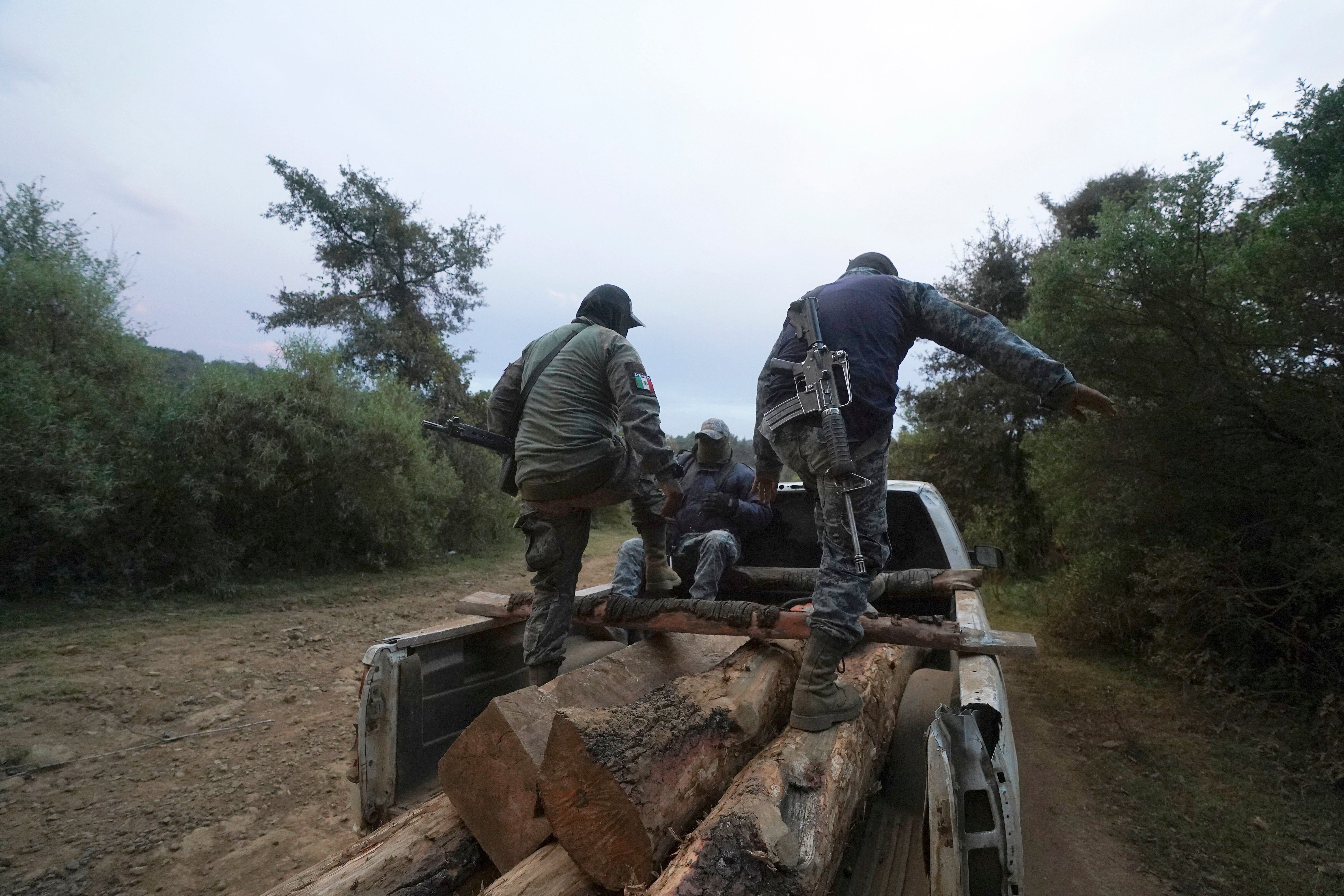Mexico's traditional and Indigenous community police come under fire from drug cartels
Mexico’s traditional and Indigenous community police forces are coming under increasingly deadly fire from drug cartels

Your support helps us to tell the story
From reproductive rights to climate change to Big Tech, The Independent is on the ground when the story is developing. Whether it's investigating the financials of Elon Musk's pro-Trump PAC or producing our latest documentary, 'The A Word', which shines a light on the American women fighting for reproductive rights, we know how important it is to parse out the facts from the messaging.
At such a critical moment in US history, we need reporters on the ground. Your donation allows us to keep sending journalists to speak to both sides of the story.
The Independent is trusted by Americans across the entire political spectrum. And unlike many other quality news outlets, we choose not to lock Americans out of our reporting and analysis with paywalls. We believe quality journalism should be available to everyone, paid for by those who can afford it.
Your support makes all the difference.Mexico’s traditional and Indigenous community police forces are coming under increasingly deadly fire from drug cartels, authorities said Monday.
Adrián López, the chief prosecutor in the western state of Michoacan, confirmed that gunmen linked to drug cartels shot to death seven members of the community police force in the town of Coahuayana over the weekend.
The community guards were killed just days after seven members of an Indigenous community police force were kidnapped, apparently by cartel gunmen, and put through “hell” in another Michoacan town before they were freed Friday.
In the face of cartel turf wars that have emptied towns in the Mexican countryside, many places have turned to “community police,” who are relatively untrained members of the town who volunteer or are paid a small stipend to protect residents.
More common in Indigenous towns — which have centuries of experience in organizing and defending themselves — the community police are a more established and trusted force than the ephemeral “self defense” squads that flourished in Michoacan between 2013 and 2014 to fight the cartels but were quickly corrupted.
But while they enjoy the trust of their fellow townspeople, the community guards can't match the firepower of the cartels that want their land.
López, the state prosecutor, said the attack in Coahuayana Saturday was related to battles by drug cartels to control the coastal area, a main route for landing seaborne shipments of cocaine.
“This all involves the decision of the members of criminal groups to gain territory and carry out illegal activities, mainly drug smuggling,” he said.
Coahuayana (koh-why-YAH-nah), which sits on the Pacific coast near the neighboring state of Colima, is particularly attractive for the cartels; go-fast boats transporting cocaine from South America have a straight route here, but often dump floating bales of cocaine at sea with location devices, to be picked up and taken ashore.
“The area on the coast of Michoacan and Colima has been ideal for picking up packages of cocaine from South America,” López said. “There have been innumerable seizures of packages of cocaine by the Navy.”
While nobody in Coahuayana would say which gang carried out the killings, suspicion immediately turned to the Jalisco New Generation cartel, which has long been active in the region.
The cartel is also suspected of being responsible for the kidnapping of seven community guards — six men and one woman — who were abducted last Tuesday and released Friday in the Purepecha Indigenous township of Tangamandapio (tahn-gah-man-dah-Pee-oh) Michoacan.
Those traditional officers are known as “Kuárichas,” (KWAH-rich-ahs) in Purepecha. In Indigenous towns, such forces have legal status to handle minor offenses.
The seven were abducted Tuesday, and a massive search operation was launched involving helicopters, the military and state police. None would say who kidnapped them or what was done to them, but suspicion once again fell on the Jalisco cartel, based in the neighboring state of that name.
One of the officers, Brayan Javier, said after his release, “the truth is, it was hell there, because of a lot of things that happened.”
Another of the rescued guards, Luis Reyes, said their liberation was due to the unity and strength of the Purepecha community that helped in the search effort.
“Thanks to the entire town, all the Purepecha people, we are strong,” Reyes said.
While Reyes and the others remain convinced that the Indigenous resilience and community ties can fend off the cartels, that is less than clear.
In recent months in the southern state of Chiapas — one of the most heavily Indigenous parts of Mexico — the area near the border with Guatemala has essentially fallen under the control of warring drug gangs, causing some Chiapas residents to give up and flee into neighboring Guatemala.